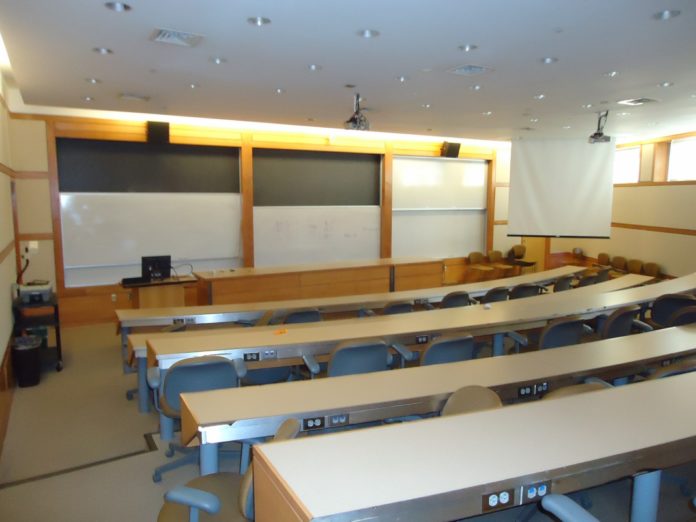Colleges and universities have to face the reality that their plans for on campus learning in the fall semester, many of which are thoughtful and well-intentioned, would be both immoral and deadly to implement when the number of COVID-19 cases, hospitalizations, and deaths are surging as is the case right now.
It is the responsibility of colleges and universities as communities of higher learning that teach and value the humanities and sciences to honor the inherent worth of every person and respect scientific evidence.
This requires colleges and universities to make the moral decision to honor the life of their students, staff, faculty, administrators, and the broader communities of which we are all a part by not reopening our campuses while the spread of the virus is out of control.
Colleges and universities must be leaders in containing the virus through the careful application of ethics and science and not become leaders of increasing the spread of the virus, which is already out of control.
If COVID-19 were only spread through larger droplets that do not stay in the air very long, then it might be safe to hold in person classes on college and university campuses this fall under very strict protocols of social distancing and mask wearing, but the scientific evidence [something to which all colleges and universities should be paying attention] now tells us that COVID-19 is also airborne in smaller droplets in aerosol form that can stay in the air and concentrate for hours, making dorms and classrooms some of the highest risk areas for the spread of the virus.
I understand that the financials of many institutions of higher education are in a dire situation. Colleges and universities are going to lose students in the fall whether or not in-person classes are held on campus. Some students will not want to come back unless classes are held in person, and some students will not want to come back unless classes are held online.
Hopefully colleges and universities will be willing to lose some enrollment in the pursuit of keeping our communities safe by not attempting on-campus learning in the fall, rather than risking the permanent loss of students, staff, and faculty through preventable death.
As a higher education colleague said to me today: “Whatever choices we make, they won’t work for everyone and we will lose some folks. Better to lose some folks from the rolls than lose some folks from life.”
In the end, if classes are held in person in the peak of a pandemic, there will likely be more loss of money through wrongful death lawsuits than there will be from lower enrollment.
I can’t imagine anyone wanting to be back in the classroom in the fall more than I do. I love teaching. I love being with students. I love being with staff and faculty colleagues. It is very difficult to recreate something close to the academic community that is made possible through on-campus learning.
I miss it deeply, but as deeply as I miss it, as a faculty person who is also a minister, I have had the difficult and sacred responsibility of leading funeral and memorial services for faculty, staff, and students on a number of occasions during my 24 years as a professor. The deaths of those students, staff, and faculty were beyond anyone’s control.
If colleges and universities pursue on campus learning in the fall during what is currently the peak of the pandemic, there will be many funerals and memorial services across the nation in the fall for faculty, staff, and students, as well as for members of their families; and we will not be able to say that their deaths were beyond our control.








